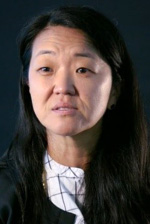
Chief Executive Officer, Imugene Limited
Leslie Chong has over 19 years of experience in leading cancer research clinical programs. She got involved in science and cancer research after her father was diagnosed with stomach cancer and her mother with lung cancer.
Most recently, she led the clinical research team developing a drug that is now used in the treatment of melanoma. She has previously worked at the large biotech firms Genentech and Roche.
Her current company, Imugene, is developing vaccines to target some types of stomach and breast cancer.
Video transcript
Leslie Chong
CEO, Chief Executive Officer,
Imugene Limited
I’ve been a cancer researcher for roughly about 19 years now and it’s evolved to the point where we’re finally allowing your body to heal itself. In that cancer can be really smart; it invades your immune system. But now we’ve figured out a way to tap into your immune system such that your body is smarter than the cancer.
Back when I was in school which was you know, a very long time ago, it was these teachers that really inspired me and made me really curious about wanting to learn more. They made me crave an understanding of what’s happening around me. When my father was diagnosed with gastric cancer and when my mother was diagnosed with lung cancer, I think that’s when it really brought it home to me that science is real and I need to do something about it.
In the last 20 years I’ve seen lots of dynamic movements in the biotech and pharmaceutical world and also in the academic setting as well. Science is really about evolving, learning from the past, moving forward, and you need to adapt that for yourself — that flexibility will keep you very current. I’ve hired probably about two hundred people in my lifetime and so I’m always looking at technical skills, but what I find is that if you have the aptitude, technical skills can be taught. It’s the attitude. I value team work; I value collaboration because collaboration makes you a better leader. That willingness to work with others, that wanting feedback, having the flexibility to look at it from a different point of view. Those things are really hard to build.
You know when I think about the first scientist who decided to look at the microscope, I think it must have taken a spark of genius to think there’s something beyond our eyesight and I think that’s what a scientific approach is. It’s that spark of curiosity to look beyond what you already know and try to define it and set a standard for the next person.
If I had one wish for the youth of the world — go beyond the ‘me’ culture. Don’t just think about yourself. Think about what you can add to your environment, your work, your social being, what you can add to your community. Be kind to yourself, but be kind to others.


